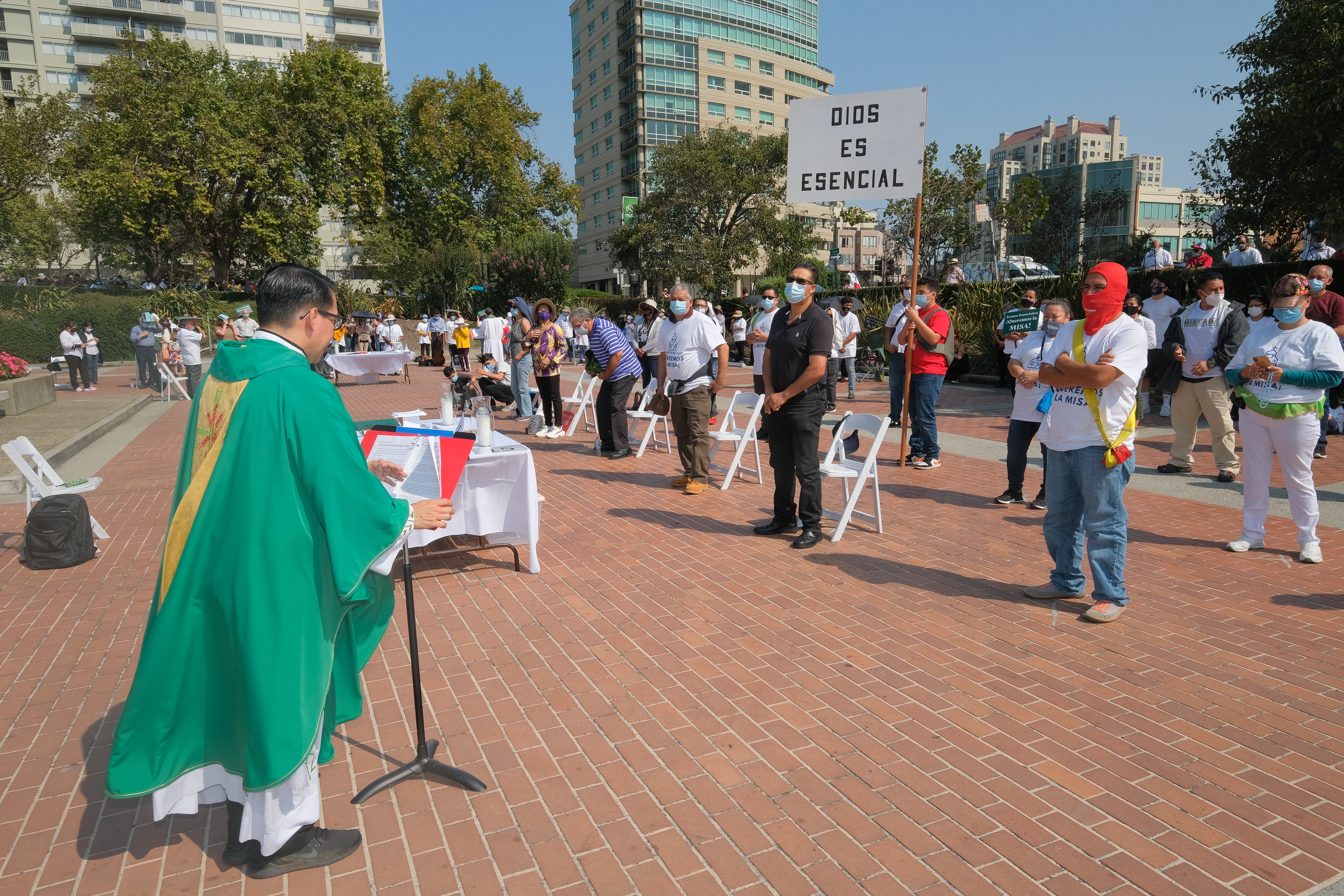Cardinal Robert Sarah, Prefect of the Congregation for Divine Worship and the Discipline of the Sacraments, has sent a letter to the Presidents of the Episcopal Conferences of the Catholic Church, a document approved by Pope Francis, with the purpose of giving guidelines on the celebration of the liturgy during and after the pandemic we are currently experiencing.
Dimension community
The document begins by highlighting the importance of the importance of the communitarian dimension, that is, that the relational dimension is intrinsic to man, created in the image and likeness of the Triune God. is intrinsic to man, created in the image and likeness of the Triune God. Thus as well as the "Mr. Jesus began his public ministry by calling a group of disciples calling a group of disciples to share with him in the life and proclamation of the Kingdom. the proclamation of the Kingdom; from this small flock the Church is born"..
Freedom of worship
Cardinal Sarah draws attention to the fact that "Christians, as soon as they enjoyed freedom of worship, were quick to build places that would be domus Dei et domus Ecclesiae where the faithful could recognize themselves as a community of God, a people called to worship and constituted as a holy assembly. God, a people called together for worship and constituted as a holy assembly".. From In this way, it makes clear the necessity and connaturalness of Catholics being able to celebrate the central mystery of the faith in a communitarian way, i.e., the faith the central mystery of faith in a communitarian way, that is, faith is not a private matter. is not a private matter.
Collaboration with the civil authority
Christians have always have always sought to live "formed in the value of community life and in the search for the common good". in the pursuit of the common good".Hence, during this time of pandemic has been manifested "a great sense of responsibility" on the part of the bishops and pastors who have been able to abide by the norms issued by the civil authority with a view to preventing civil authority with a view to preventing contagion, including the "have been willing to take difficult and painful difficult and painful decisions, even to the point of prolonged suspension of the faithful from participation of the faithful in the celebration of the Eucharist"..
Let us return to the Eucharist
"However, as soon as as soon as circumstances permit, it is necessary and urgent to return to the normality of Christian life, which has as its home the church building. normality of Christian life, which has as its home the building of the church, and the celebration of the liturgy, particularly the Eucharist". From Thus, the Prefect of the Congregation urges the bishops to take up again the celebration of the the celebration of the Holy Mass as the source from which all the activity of the Church flows (cfr. of the Church (cf. Sacrosanctum Conciliumn. 10), always with due observance of sanitary with due observance of the sanitary norms.
Some hazards
Warns of some dangers resulting from the fact that the people of God have been deprived of the sacraments. the sacraments: equating the transmissions of the Holy Mass with personal personal participation in the Eucharist; substituting physical contact with the Lord, truly present in the Eucharist the Lord, truly present in the Eucharist; the reduction of the Holy Mass, on the part of the civil authority, to a by civil authority, to the status of a meeting equated to recreational activities recreational activities; allowing the State to legislate on liturgical norms; to go so far as to prevent hygienic norms as to deny the faithful the right to receive the Body of Christ and adore Him in the the faithful the right to receive the Body of Christ and to adore Him in the manner the right to receive the Body of Christ and to adore Him in the manner provided for. To this end, he warns the bishops to be vigilant and trusts in their action "cautious but firm" so that the faithful may return to the Eucharist. Eucharist.








